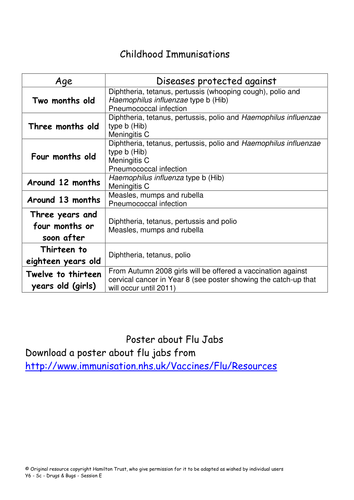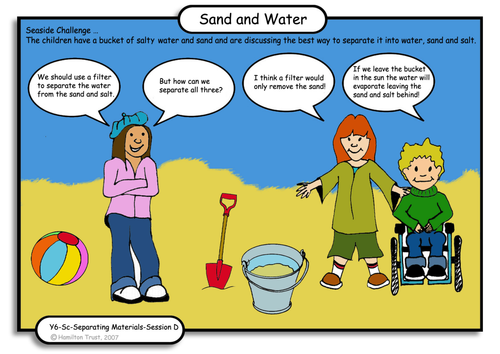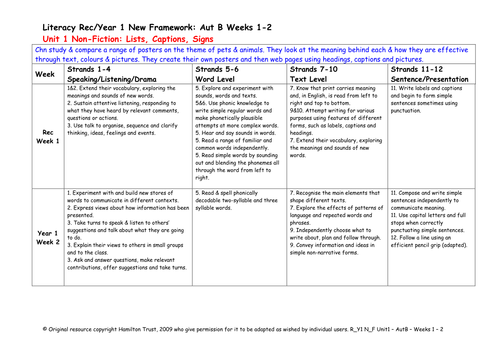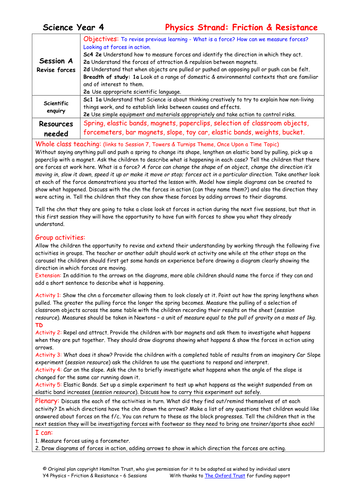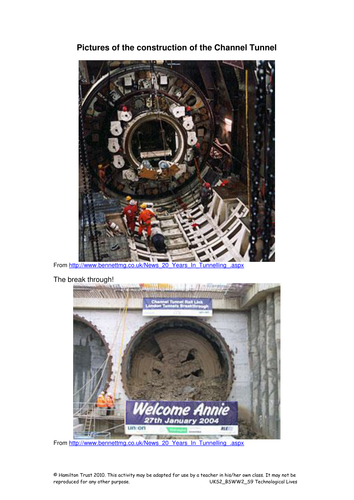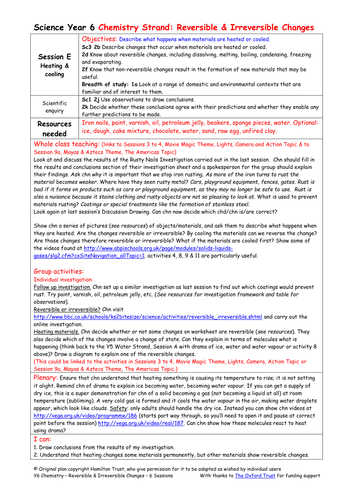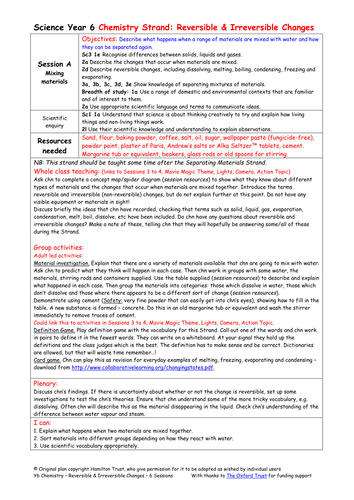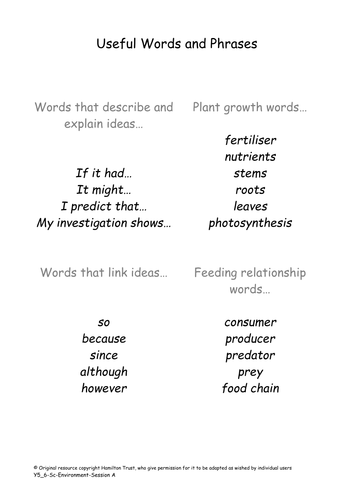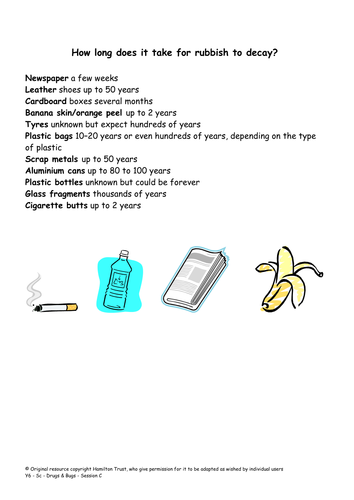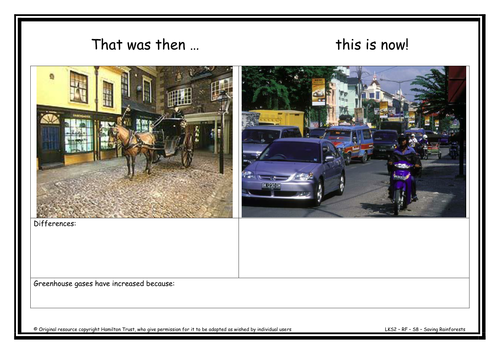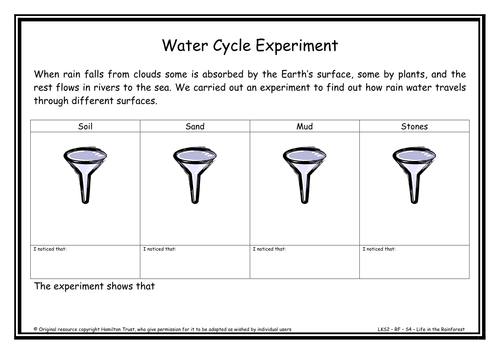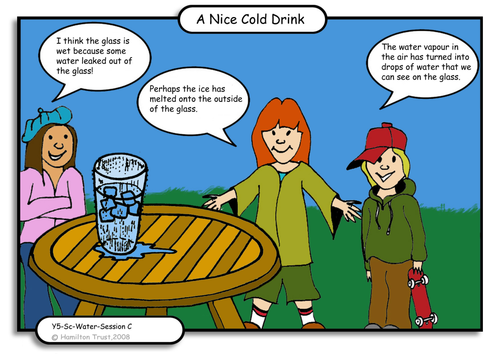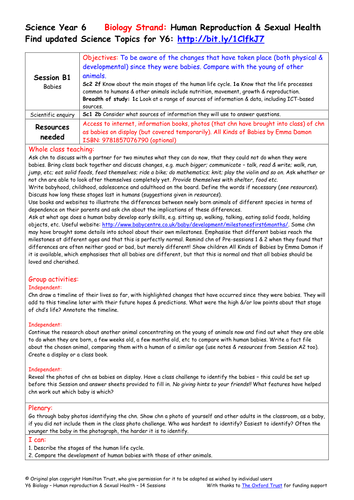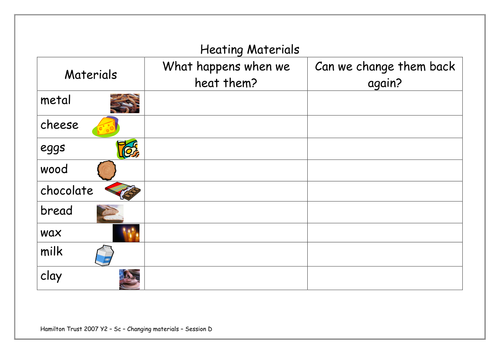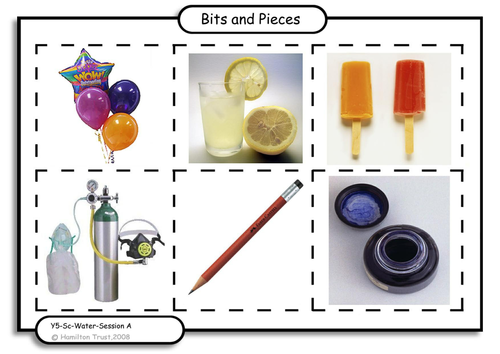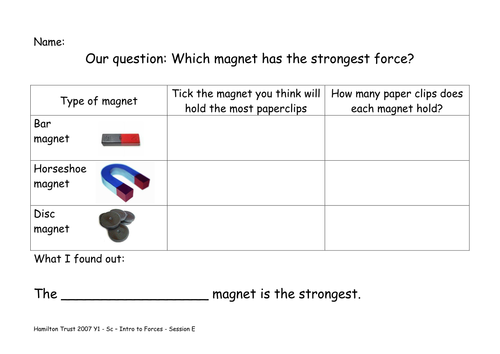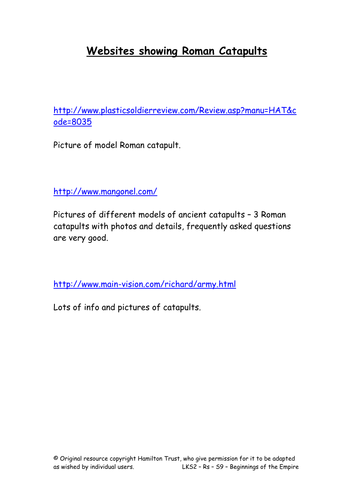
397Uploads
10045k+Views
11646k+Downloads
Elementary science

Diseases and antibiotics
Look at diseases caused by micro-organisms. Invite a health professional into class for children to question. Discuss prevention and cure of illnesses caused by microbes including vaccination and antibiotics. Find out about the work of some famous scientists.
Suitable for Y6 pupils.

Evaporation
Evaporation is the name of the game in this session as children use it to separate materials in solutions. They investigate a variety of liquids to see which leave a residue after evaporation and grow their own salt crystal. Suitable for Y6 pupils.

Energy
This session we consider how we are using up fossil fuels. How did we heat our homes and cook in the past? Discuss renewable energy and any local schemes to try and use more renewable energy. Challenge children to make a solar oven and cook something with it!

Yr1 NF Unit 1 Lists, captions and signs
Children study and compare a range of posters on the theme of pets and animals. They look at the meaning behind each and how they are effective through text, colours and pictures. They create their own posters and then web pages using headings, captions and pictures.

Revise forces
It’s forces ‘n’ fun in this session as the children get the opportunity to show what they already know. Through hands on activity they use slopes, magnets and elastic bands to revise previous learning. Forcemeters at the ready! Suitable for Y4 pupils.

Crossing The Channel
Children discuss ways of crossing the Channel and then make a balloon-powered hovercraft.

Heating and cooling
Use findings from Rusty Nails Investigation to plan another test. Look at the changes that occur when common materials are heated, and then decide whether or not cooling will reverse the change. What happens if the materials are first cooled and then heated?
Suitable for Y6 pupils.

Mixing materials
Find out what children already know about materials and the changes that occur when they are mixed. Predict and investigate what happens when a variety of materials are mixed with water. (Re)introduce terms reversible and irreversible. Play a vocabulary game.
Suitable for Y6 pupils.

Plant growth
Children receive a letter requesting help from the Native Nursery. Children must design and set up experiments to find the best conditions for growing seeds. They will monitor progress and report their findings in Session F.
Suitable for Y5/6 pupils.

Food and micro-organisms
Look at micro-organisms that are beneficial to food production and the problems of food decay caused by micro-organisms. Study yeast growth and begin some decay investigations on damp bread and apples. Use yeast to make bread rolls and discuss food hygiene.
Suitable for Y6 pupils.

Why things float
Why do some materials/objects float or sink? Talk about different materials used to make boats & ships. Carry out investigations: can children make plasticine float? How many pebbles/marbles will sink a plastic container? What happens when you blow air into water? Suitable for Year 1 pupils.

Washing Machines and Spin Driers
Children look at labour saving household inventions, order picture of machines across the decades and then carry out an experiment to find out how spin driers work.

Global Warming and Its Causes
What is global warning? Children find out what global warming is and how humans have caused and are contributing to the problem. Children compare life now to life 100 years ago and highlight the changes which have increased CO2 levels.

Is it sinking in! Rain into Earth
In this session children find out how the rain drops that fall from the clouds get back to the rivers and seas so that the cycle can start again. Children test a variety of natural Earth surfaces to see which allows water to flow through the fastest.
Suitable for years 3 and 4.

Evaporation and condensation
Look at evaporation and condensation of water as reversible changes. Discuss everyday examples & uses of evaporation and condensation. Plan and carry out an investigation into the factors that speed up evaporation.
Suitable for Y5 pupils.

Babies
Session 1 - Children consider the development that they have undergone since they were babies. Draw a timeline of their lives so far. Continue research into the life stages of another animal concentrating on how quickly the babies develop. Have a baby photo challenge!
Session 2 - Look at the proportions of a human adult as shown by Leonardo’s Vitruvian Man. Investigate the shape changes between a baby and an adult human, concentrating on the head to body length ratio. Measure and draw graphs. Sketch children and adults in proportion.
Suitable for Y6 pupils.

Investigate effect of heat
Start to explore and describe the way some materials change when they are heated. Practical class investigation about toasting bread, with a focus on observation.
Introduce concept of reversible and irreversible changes for more able learners.
Suitable for Year 2 pupils.

States of matter
This strand begins with children comparing the properties of the three states of matter – solid, liquid and gas. Water is used as an example of a material that can exist in all three states. Use drama to model this.
Suitable for Y5 pupils.

Explore push and pull with magnets
Explore pushes and pulls using magnets. Do a test to find out which is the strongest magnet out of three. Record findings. Explore toys and games that use magnets. Think about everyday objects that use the forces exerted by magnets. Suitable for Year 1 pupils.

Design & Make Catapults
Children look again at Roman catapults. Using a wide variety of materials, incl some mechanical components, they design & create a working model of a catapult in the Roman style. They develop their ideas, then compete to see whose catapult works best!
Suitable for years 3 and 4.

